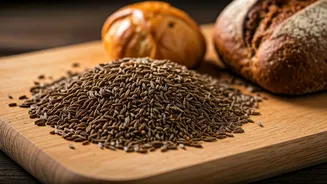Oats: Heart-Healthy Start
Oats are a fantastic choice for breakfast and a great starting point for lowering cholesterol. They contain soluble fiber, specifically beta-glucan, which
acts like a sponge, absorbing cholesterol in the digestive system and preventing its absorption into the bloodstream. Including oats in your diet can significantly reduce LDL (bad) cholesterol levels. Oatmeal, oat bran, and even oat-based cereals are excellent sources. The benefits extend beyond cholesterol reduction; oats also contribute to improved blood sugar control and promote a feeling of fullness, which can aid in weight management. A daily serving of oats can be easily integrated into your routine, be it a warm bowl of oatmeal, adding oats to smoothies, or using them in baked goods.
Beans: Fiber Powerhouse
Beans are a powerhouse of fiber, both soluble and insoluble, making them another valuable addition to a cholesterol-lowering diet. The soluble fiber in beans binds to cholesterol in the digestive tract, preventing its absorption and promoting its excretion. Furthermore, beans are a great source of protein, which can help in reducing the intake of saturated fats often found in animal proteins. Various bean types, such as kidney beans, black beans, navy beans, and lentils, offer similar cholesterol-lowering effects. Incorporating beans into your meals is easy – add them to soups, stews, salads, or even blend them into dips and spreads. Regular consumption of beans not only helps manage cholesterol but also supports digestive health and contributes to a balanced diet.
Nuts: Healthy Fats Included
Nuts, particularly almonds, walnuts, and cashews, are rich in healthy fats, fiber, and plant sterols, all contributing to cholesterol reduction. These nuts primarily contain monounsaturated and polyunsaturated fats, which are known to lower LDL cholesterol while maintaining or even increasing HDL (good) cholesterol levels. The fiber content further aids in lowering cholesterol levels. Plant sterols, naturally present in nuts, can block the absorption of cholesterol in the digestive tract. A handful of nuts daily is a beneficial snack. Ensure portion control, as nuts are calorie-dense. You can add them to salads, enjoy them as a snack, or incorporate them into your breakfast cereal for a tasty and heart-healthy boost. However, people with nut allergies should avoid these.
Fatty Fish: Omega-3 Benefits
Fatty fish, such as salmon, mackerel, and sardines, are packed with omega-3 fatty acids, which provide a range of health benefits, including reducing LDL cholesterol and triglycerides. Omega-3 fatty acids help reduce inflammation and prevent the buildup of plaque in arteries, ultimately lowering the risk of heart disease. Furthermore, fatty fish are an excellent source of protein, which can replace less healthy protein sources in your diet. Aim to include fatty fish in your diet at least twice a week. You can bake, grill, or pan-fry these fish. Adding some lemon juice or herbs can make the fish even more delicious. Regular consumption of fatty fish is linked to improved heart health, reduced blood pressure, and better overall well-being.
Avocados: Cholesterol Crusher
Avocados are packed with monounsaturated fats, which play a crucial role in lowering LDL cholesterol levels. These fats help maintain the balance of good and bad cholesterol, leading to improved heart health. Avocados are also rich in fiber and plant sterols, contributing to their cholesterol-lowering properties. Including avocados in your diet is simple: add them to salads, sandwiches, or smoothies. You can also mash them to make guacamole or spread them on toast. Their versatility makes them an excellent addition to any meal plan. The healthy fats in avocados also help in the absorption of fat-soluble vitamins, enhancing their nutritional value. Moderate avocado consumption can significantly impact your cholesterol levels and overall health.
Olive Oil: Heart-Healthy Choice
Olive oil, especially extra virgin olive oil, is a staple in heart-healthy diets due to its high monounsaturated fat content. Regular consumption of olive oil is associated with a reduction in LDL cholesterol and an increase in HDL cholesterol. Its antioxidant properties contribute to protecting blood vessels from damage and reducing inflammation. Use olive oil for cooking, salad dressings, and dipping bread. It's a versatile and flavorful option that can easily replace less healthy fats in your diet. The benefits of olive oil extend beyond cholesterol management; it is linked to a reduced risk of heart disease, improved blood sugar control, and better overall cardiovascular health. Opting for extra virgin olive oil ensures you get the most antioxidants.
Foods with Added Sterols
Foods fortified with plant sterols and stanols are another effective way to lower cholesterol levels. These compounds, found naturally in plants, are added to foods like yogurt, orange juice, and margarine. Plant sterols and stanols work by blocking the absorption of cholesterol in the small intestine, thus reducing LDL cholesterol. These fortified foods are especially helpful for those looking for an extra boost in their cholesterol-lowering efforts. It is advisable to incorporate these foods as part of a balanced diet. Read the labels to ensure you're getting the right amount. Integrating them into your daily routine can significantly contribute to better heart health. Be sure to consult with a healthcare professional to determine the appropriate amount for your needs.


















